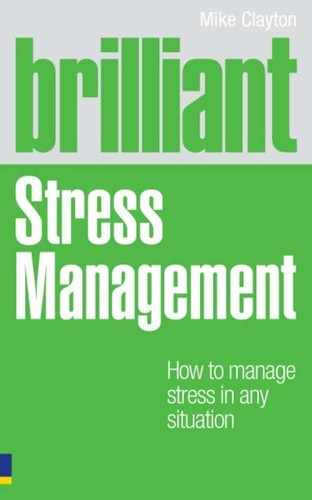74 brilliant stress management
OATS
OATS stands for:
Outcomes
Activities
Time
Schedule
It sets out, in sequence, the four steps in planning how to use
your time effectively. Some people will ask: ‘When should I get my
OATS?’ Well, if you ever have trouble sleeping at night because
the things you need to do tomorrow are buzzing around in your
head, then you should get your OATS before you go to bed.
Otherwise, it is equally effective to do it in the morning, before
you start your day’s activities.
The next four sections of this chapter describe each of the
steps in turn. Then we will turn to three of the commonest
stress-inducing time management problems: putting things off,
saying no, and dealing with a feeling of being overwhelmed.
We will end on a lighter but crucial note: the importance of
celebration.
Outcomes
The rst step in OATS planning is to decide what you want
to be different at the end of tomorrow or next week, next
month or next year. These are your outcomes. From here
on, we will illustrate OATS planning with a daily planning
process, but you can plan your next week with it, or your next
month, or even the next year. Keep the number of outcomes
you set to a manageable number. For example, in one day,
three would be a good number, but it is possible there may
just be one thing you want to achieve. If you are getting past
ve, ask yourself: ‘Am I just creating more pressure and stress
than I need?’

Control your time 75
brilliant
activity
Goal setting
Deciding your outcomes for the next day – or week or year – can be
difficult. There are often so many competing demands on your time and
attention. This is stressful, so really effective time management (rather than
being reactive and managing the tasks you already have) requires a big
picture of what you are trying to achieve in your life: your goals.
Put aside at least half an hour – more if you can – to sit quietly with a
notepad, and think through the answers to these four questions:
1 How is my life, now?
Inventory each aspect of your life: your family and friendships, your
home life, your career and work life, your financial situation, your
hobbies and interests, your education and self-development. How
content and successful do you feel in each area, and overall? What are
you happy with? What would you like to change, or develop?
2 What is important to me?
Now think through what sort of person you really are. What words
would you use to describe yourself? For example, you may be ambitious,
arrogant, caring, dependable, enthusiastic, intellectual, jolly, miserly,
practical, selfish . . . Pick a dozen or so words. Once you have done that,
ask yourself: ‘What things are most important to me in my life?’
3 What do I want?
Such a simple question. Ask yourself what you want for yourself, what
you want to achieve, and how you want your life to be in the future.
What do you need to learn, to do, to acquire, to achieve? Write these
down, because these are your goals in life.
4 When do I want them?
Pursuing too many goals can be stressful, so start to prioritise and
sequence them. For each goal, prioritise it as either primary (something
you feel you must achieve to create fulfilment in your life) or secondary
..................Content has been hidden....................
You can't read the all page of ebook, please click here login for view all page.
